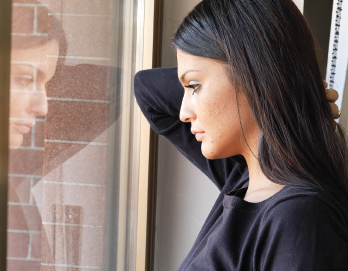
Shooting Star Studio / shutterstock.com
Systemic lupus erythematosus (SLE) is more prevalent among Hispanic women than white women, according to two recent studies published in Arthritis & Rheumatology.1,2 However, Latinas often lack awareness of lupus, which can contribute to delays in diagnosis and treatment, and lead to worse outcomes.
“One of the challenges is reaching out to the Latino community, because many have language and access barriers. We need to implement programs that will overcome these barriers and that have cultural relevance, including messages that will resonate with these particular patients, incorporating the challenges they face with getting a lupus diagnosis and care,” says Cristina M. Drenkard, MD, PhD, an Atlanta rheumatologist and associate professor of epidemiology at the Emory School of Medicine. “Because I’m also a Latina, I’m very interested in programs targeting the Latino community.”
Dr. Drenkard serves on the ACR’s CDC Grant Steering Committee, which provides guidance to projects funded by the Centers for Disease Control and Prevention (CDC). These projects aim to raise lupus awareness and skills among individuals and healthcare providers to improve the diagnosis and treatment of lupus. The Promotores Project, which launched three years ago, is one of these programs.
Community Health Workers
Promotores de salud, also called promotoras, are recognized lay health workers in the Latino/Hispanic community.3 These community health workers are usually women and are trusted by their clients, who may be family members, friends or neighbors. They promote awareness of health issues among fellow Latinas and help clients find health resources. The ACR’s Promotores Project is part of its Collaborative Initiatives (COIN).
Six programs have been held so far in Florida, Georgia, Texas and California. Community health workers attending these sessions learn more about SLE signs and symptoms, high-risk groups, diagnosis, where to find a rheumatologist, treatment options and the importance of seeing a provider if symptoms arise. Programs include role playing to give them practice in communicating SLE information and responding to common client questions or concerns.
Dr. Drenkard reviewed the program curriculum, which was created in part by Venus Ginés, founder of Dia de la Mujer Latina, a Texas-based organization providing education and outreach to promote healthy behaviors in the Latino community.
Ms. Ginés, who has lupus, has led several of the training sessions and serves on the Promotores Project’s Advisory Committee. “I’ve been very vocal about the fact that there is very little research on Latinas with lupus,” she says. She was diagnosed with lupus shortly after she was diagnosed with breast cancer while working as a flight attendant. “My joints were hurting. I had horrible headaches. I thought it was all related. It’s important for a doctor, when you have a patient in front of you, to ask the crucial questions.”
Spanish & English Materials
Community health workers receive a toolkit to share with clients who may be at risk for lupus, says Robin Campbell, senior specialist and project manager of COIN. Patients may then talk to their primary care providers armed with more knowledge of SLE, “and they can be taken more seriously. This project utilizes the strength of the community health workers, who are trusted by their clients, to provide reliable health information. They speak the language and understand the culture,” she says.

